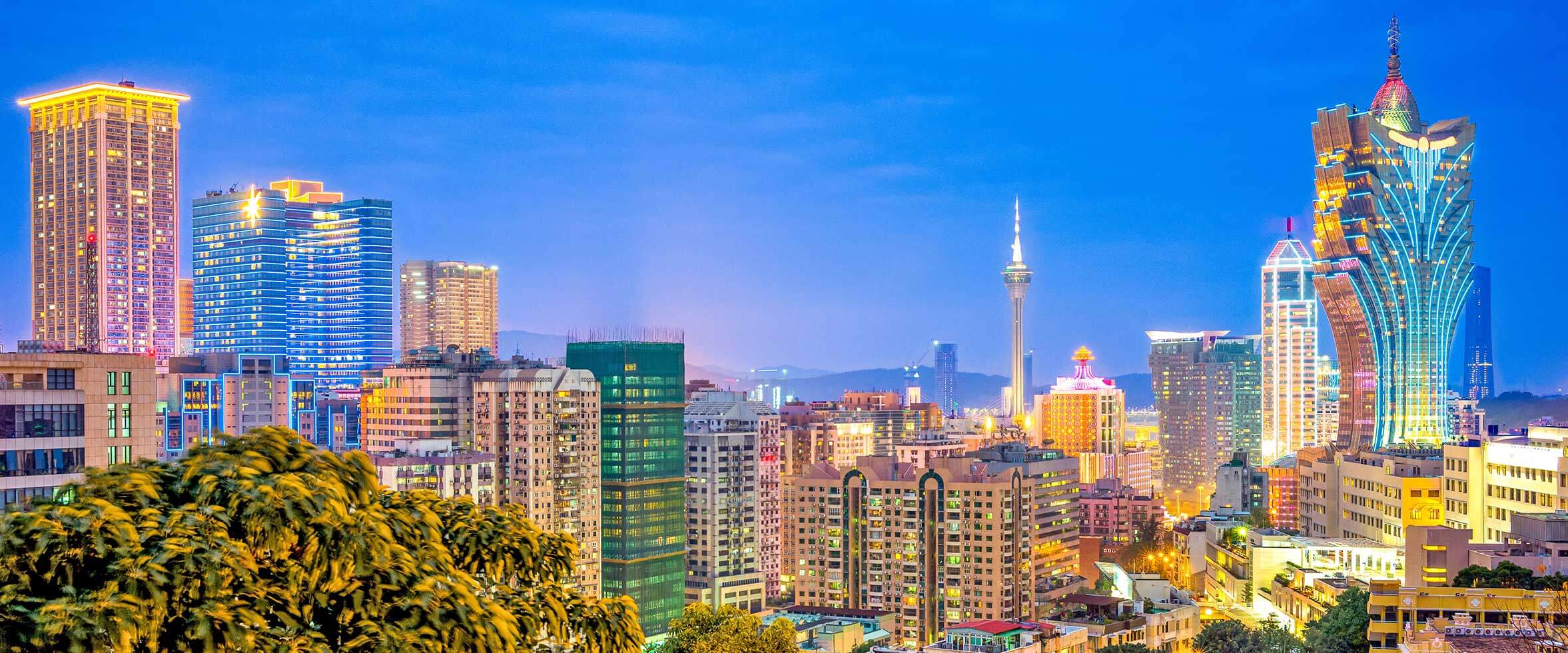The semi-autonomous region of Macau has become the world's most popular destination for land-based casinos in the past two decades - leaps and bounds ahead of all other competing resorts. Did you know, in fact, that Macau's gambling industry is said to be seven times more lucrative than its infamous Las Vegas counterpart?!
Macau City
The Macau region has a long and storied history of international influence. Going back to the 16th century and lasting well into the 20th century, Macau's economy was dominated by Portuguese traders. The port of Macau dominated regional trade until the middle of the 19th century when Hong Kong, located about 60 kilometres to the east, was developed by the British.
As Asia was being decolonized in the latter half of the 20th century, Macau and Portugal agreed to transfer administrative control to China. The Portuguese ruled Macau for 442 years until December 20, 1999, when it became part of China.
As part of the transfer agreement, Macau enjoys autonomy not afforded to other Chinese regions. Largely left to administer the territory themselves, Macau is free to pursue its economic system with minimal Chinese interference through 2050.
History of Gambling in Macau
Licensed gambling in Macau goes back nearly 200 years. In the mid-19th century, the Portuguese government authorised so-called "gambling houses". While this ushered in the first legalised gambling in Macau, it was still a very local operation that catered to wealthier people from the inland and sailors making port calls.
In the 1960s, all that began to change. In 1962, a group of Hong Kong and Macau businessmen created Sociedade de Turismo e Diversões de Macau. This organisation controlled gambling licenses, a mandate that it maintains to this day. In addition to regulating the market, the Sociedade de Turismo e Diversões de Macau partnered with ferry companies to provide increased transportation from Honk Kong to the casino district in Macau. By the mid-1960s, gambling already accounted for 50% of the region's economy.
The Macau government granted economic autonomy to China in the early 2000s, which led to a quick liberalisation of their gaming industry. Established American brands like Wynn Resorts Inc., Las Vegas Sands Corp., and MGM Grand Hotel & Casino wasted no time in applying for licenses to construct new land-based venues - eager to seize their slice of the pie.
Macau and the Future of Gambling
Macau has been the premier gambling destination for years now, with Las Vegas coming in second place. Housing over 40 major casinos, Macau has more options for the modern day gambler than any other region in the world!
Two major infrastructure projects have helped fuel Macau's growth. Macau International Airport, which opened in 1995, brings over seven million visitors to Macau each year. Also, the Hong Kong–Zhuhai–Macau Bridge, a 55-kilometre long tunnel and bridge crossing, now affords a quick connection from Hong Kong to Macau via rail and automobile, shaving hours off the former land route.
The biggest threat to Macau comes from other emerging Asian markets. Places like Singapore, Australia, and the Philippines are seeing even larger growth than Macau these days. Of course, this needs to be understood in the context that those markets are small and significantly underdeveloped relative to Macau's firmly established position.
